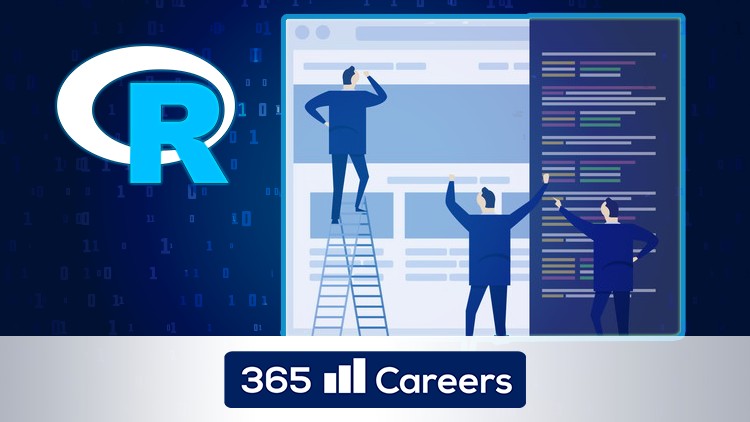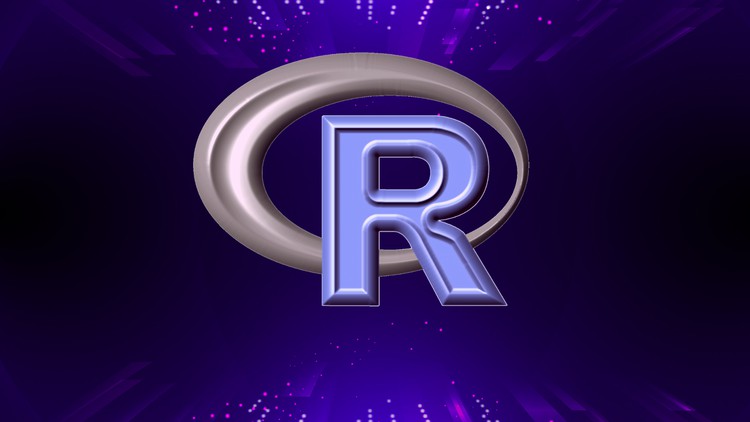Course overview
- Provider
- Udemy
- Course type
- Paid course
- Level
- All Levels
- Duration
- 19 hours
- Lessons
- 228 lessons
- Certificate
- Available on completion
- Course author
- Numyard Data Science Team
-
- Learn to program in R Language
- Learn to use R Studio
- Master statistics for machine learning
- Master Vectors, Lists & Dataframes
- Create variables and run loops
- Perform binding functions & set operations
- Create professional plots using GGPlot2
- Master statistics for machine learning
- Learn to use ML models for business
- Solve Industry projects end-to-end
- Advanced data manipulation with Data Table
- Advanced programming with Dplyr package
- Create full featured plots using base graphics
- Elegant pipe syntax codes using Magrittr
- Learn Data Manipulation verbs
- Learn Law of large numbers
- Central Limit Theorem & Normal Distribution
- Statistical significance tests: t Tests , ANOVA, and more
- Master linear & Logistics regression models
- Build Statistical models from scratch
- Perform post model building diagnostics
- Hand computation of statistical tests
- Master model insight generation skills
- Learn how to present insights to stakeholders
Description
In The Complete R-Programming for Data Science & Statistics program, we have carefully designed 7 Full-Fledged courses into 1 Master Course of 200+ videos, 50+ R-Packages, Core Machine Learning and statistics concepts, 75+ practice problems and 2 Industrial projects
By end of this course, you will be able to solve Industry Data Science project in R starting including model building, model diagnostics and presenting actionable business insights
Here's how you will progress across the 7 courses in the Master Course:
Getting started with R-programming: First, you will learn to write your own R code and perform basic programming tasks. You will begin with the base R programming course, where you will master the fundamental data structures such as vectors, lists, dataframes , understand the core programming constructs and get enough coding practice. You will also create full featured plots for data analysis using base graphics.
Advanced coding with Tidyverse: Then you will move to advanced coding in R based on the tidyverse using the dplyr package. You will start using the elegant pipe syntax provided by the magrittr package and the data manipulation verbs.
Data.table for data wrangling in R: Then You will move on to master the data.table package which has advanced capabilities for fast data manipulation. Data Scientists love this package for its incredible speed gains. Here, you will do fast data imports, create pivot tables and get comfortable with wrangling data. You will learn techniques to make your R code run super fast.
Ggplot2 Graphics in R: Once you gather the core R programming skills, you start creating professional looking plots using the famous ggplot2 package. You will be able to create any data analysis plot. Be it box plots, scatterplots, dual axis time series plots, because you will not just learn the syntax, but also learn the underlying structure behind it.
Statistical Foundations for Machine Learning: You will gain mastery over the ‘statistical foundations for machine learning’, which by itself is a full fledged statistics course. You will understand the core statistics concepts such as the law of large numbers, central limit theorem, normal distribution, how statistical significance tests such as the t-Test and ANOVA work and more, by solving multiple use cases of when and how to use them. You will know exactly how they work by following step-by-step hand computations and then implement in R to match the results. All the concepts are completely explained and demonstrated.
Statistical Modeling with Linear Regression and Case Study: After mastering statistics, you will achieve professional-level R skills with linear regression. You will understand:
What sort of industrial problems you can apply them on
Understand the math behind it
You will build the algorithm itself from scratch
Learn how to interpret the results
Perform post model building diagnostics
Learn how to present the model results in a way that is valuable to the business and project stakeholders
7. Logistics Regression for Business and Case Problem: You will understand: Then you learn the logistics regression with the same methodology of application, mathematics, building algorithm, interpreting results, diagnosing models and presenting insights
Professional Level Industry Projects: Finally, to gain and end-to-end professional Data Science project skills, you will solve two Industry projects -
> Predict Customer Purchase Propensity (Banking Domain)
> Predict U.S. Institute performance (Education Sector)
Throughout the program you will get interesting challenges, forum support for your queries and R-DataScience certification for your CV.
Similar courses

-
6 hours
-
53 lessonsCertificate

-
11 hours
-
82 lessonsCertificate


